In subject area add religion
Experts to complete voting on the course of Orthodox culture for 1-11 classes.
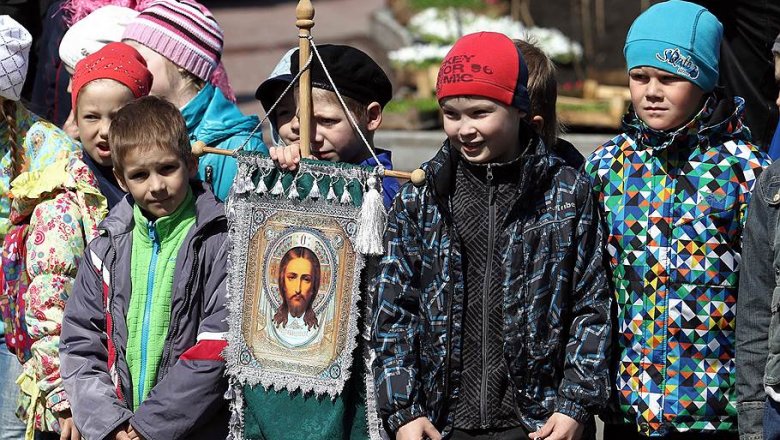
As found “Kommersant”, the Russian schools can still see the subject “Orthodox culture” for all the training — from 1 th to 11-th class. The first draft of the course received this summer a negative opinion of experts — but as it turned out, was not finally buried. We contributed to the project a number of bug fixes, and last week, the Russian Academy of education, without advertising, launched the process of absentee voting, which will run until November 30.
According to experts, if the document is approved, the course “Orthodox culture” will be massively administered in schools at the request of the Ministry of education and regional dioceses.
The Ministry of education the situation has not yet commented.
See also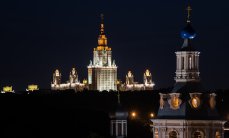 MSU Rector Vasiliev asked to allow the universities written exams
MSU Rector Vasiliev asked to allow the universities written exams
In the disposal of “b” is a letter sent out last week 36 members of the Federal educational-methodical Association (UMO) on General education (established by Ministry of education of the Russian Federation at the Russian Academy of education, developing school programs). The paper proposes to evaluate the improved program of the school course “Orthodox culture”.
Absentee voting of members of Association ends Wednesday, November 30. If they support the project, schools will receive the Federal guidelines for the study of “Orthodox culture” in 1-11 grades.
In February 2016, Patriarch Kirill said that the Russian Orthodox Church suggested the Ministry of education to expand school course “Fundamentals of religious cultures and secular ethics” (ORKSE). Now he is studying in the fourth grade, and parents can choose one of the modules: secular ethics, religious culture, Orthodox Christianity, Islam, Buddhism or Judaism.
The Patriarch stated that the allotted 34 hours were not sufficient and suggested to extend the course for the duration of schooling.See also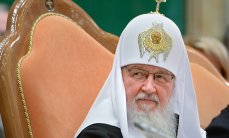 Patriarch Kirill believes that multiculturalism has no future
Patriarch Kirill believes that multiculturalism has no future
In July the head of the Russian Academy of education Ludmila Verbitskaya sent to members of the EMA project of the “Orthodox culture” for the study from the 1st to 11th class. Expert opinions are divided — so, in Moscow pedagogical state University supported course condition improvements, and colleagues from the Moscow city pedagogical University opposed.
In September, the EMA rejected the project, but the new version was already two months later. Several members of the Association, who requested anonymity, told “Kommersant” that at this time most likely to vote for the “Orthodox culture”.
The law school’s curriculum is 70% of the compulsory subjects (in primary school — 80%). How to use the remaining time, the administration decides for itself taking into account the views of parents.
Hours can be spent on extra classes in core subjects, and you can enter new lessons — second foreign language, astronomy, etc. “Orthodox culture” claims it was at this time.
The course is divided into three blocks: 1-4, 5-9 and 10-11 classes. The first unit will take a minimum of 102 hours. In the first class allowed to study “Orthodox culture” in their spare time, but then the subject is proposed to introduce into the schedule.
Among the topics to be studied can be detected “what we believe as Orthodox Christians”, “Good and evil in the Orthodox tradition” and “Christian family”.
The authors intend to achieve “the formation of Orthodox Christian value orientations” in children. And their actions students will have to evaluate “based on the moral norms of the Orthodox Christian tradition”.
See also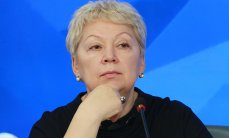 Olga Vasilyeva: I am not a reactionary and not a Stalinist
Olga Vasilyeva: I am not a reactionary and not a Stalinist
For the second unit the authors of “Orthodox culture” appeared to conflict with the logic of reference of the subject.
From 1 September 2015 the Ministry of education has introduced a compulsory part of the programme the subject area of “Bases spiritually-moral culture of the peoples of Russia” (ODKNR), calling it “a logical extension” of the course “Basics of religious cultures and secular ethics”.
First discussed the possibility of splitting the course ORKSE for two years — and then it flowed smoothly if in high school, ODKNR. But this did not happen, and specific items for her never showed up.
Now the authors propose to fill this is described in the law subject area of the course “Orthodox culture”.
If this happens, the parents will not be simple alternatives when selecting, until you develop other courses.
In 5-9 classes “Orthodox culture” claims at least 175 hours (one lesson per week), but “optimal” is called a period of 350 hours. The list of topics spans multiple pages.
There are cultural (“the Plots and characters of the Bible in Russian and world culture”, “Orthodox Church architecture,” etc.), but most of the religious worldview: “the Orthodox Christian understanding of the meaning of human life”, “Moral culture of Orthodox family”, “features of moral culture warrior Christian”.
Among other things, the student is invited to explore the theme “Latin proselytism in Russia” and “Distorted interpretation of biblical texts in the literature of destructive sects”.
According to the developers of the course, the graduate of the ninth grade must “know the names of the seven Ecumenical councils and to describe the adopted solutions”, “to navigate in the Orthodox calendar (calendar)”, “to list the twelve, passing and neperehodimyh Orthodox holidays” and “list and describe the types of Church bells and bells.”
The results of course, the authors consider “forming a worldview based on the Orthodox moral tradition” and “preparedness for deliberate self-restraint in the consumption of vital goods”.
For grades 10-11 “Bases spiritually-moral culture of the peoples of Russia” are no longer mandatory, but the authors still devote “Orthodox culture” at least 70 hours (one lesson per week) with the possibility of extension to 140.
See also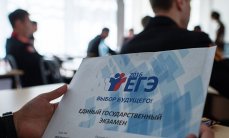 Rosobrnadzor explained why the exam bring crib
Rosobrnadzor explained why the exam bring crib
The authors propose to take studied in 5-9 grades of material, but “more detail”. In the end, graduate school is expected “the formation of the Outlook based on the Orthodox moral and spiritual culture, corresponding to modern level of science and social practice”.
“This is the first case where Federal experts to evaluate the elective course, — says the source “b” of the consultants Association.— To understand: this is how to require teachers to use a single Federal programs for all school clubs, from sewing to robotics. That is exactly why this course is important for officials”.
He says that although the choice of a specific course in “Foundations of moral and spiritual culture of the peoples of Russia” and is a matter of the school, “in reality, everything will depend on the policy of the Ministry of education, and in the regions, and pressure from the local dioceses”.
See also Scientists: religion can be infection spreads bacteria
Scientists: religion can be infection spreads bacteria
The Ministry of education are unable to respond promptly to the request to “Kommersant”. The representative of the Synodal Department for religious education and catechesis FR Gennady (Voytyshko) said “Kommersant” that the mandatory teaching of “Orthodox culture” within ODKNR not assumed. “The program needs to target educational organization — where there is a need: how to teach the subjects in the curriculum, which is formed by the school based on the needs of the legal representatives of children, — he said. This is the first step to filling the content of the subject area, ODKNR”.
Speaking about the content of the course, he rejected suggestions of violations of the constitutional provision on the secular nature of education.
You should not put a sign of equality between secularism and prelegislation. Moral education based on the traditional Russian Orthodox Outlook in accordance with the preferences of the legal representatives of the child do not contradict any domestic law nor the world’s practice.FR Gennady (Voytyshko)the representative of the Synodal Department for religious education and catechesis
Alexander Black